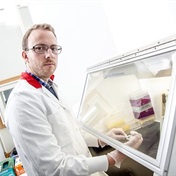Uncovering all the diseases that lurk in your family tree can trump costly genetic testing in predicting what illnesses you and your children are likely to face.
It may sound old-fashioned, but a Cleveland Clinic study comparing which method best uncovered an increased risk of cancer helps confirm the value of what is called a family health history.
"I view family health histories as back to the future," says Dr Charis Eng, a cancer geneticist at the Cleveland Clinic's Genomic Medicine Institute. "It's the best kept secret in health care."
However you do it, get the scoop on both sides of the family, says another study of 2,500 women. Researchers found that women not only know less about the health of their paternal relatives, they tend to dismiss the threat of breast cancer if it is on Dad's side.
Genomic testing
How does a good history compare with those online genomic testing services, sold without a doctor's prescription for hundreds of dollars that analyse DNA glitches and predict people's predisposition to various diseases?
To find out, the Cleveland Clinic's Eng recruited 44 people, 22 patients in her family cancer clinic and their spouses, for a family health history and a saliva test from one of those genomic services, Navigenics, to calculate their risk for colon cancer and breast or prostate cancer.
Both approaches classified about 40% of participants as having above-average risk, but they picked the same people only about half the time. For example, the genomic screening missed all nine people with a strong family risk of colon cancer, five of whom Eng's clinic gave extra scrutiny to prove they carried a specific gene mutation.
"A patient might have done this testing and been very reassured and not come to medical care," she told last week's geneticists' meeting.
Prostate cancer risk
On the other hand, Navigenics listed eight men at risk for prostate cancer when their family history predicted a risk no higher than average.
Why the difference? No matter the brand, genomic screening takes a broad look at DNA variations, including some that scientists aren't sure play a big role. Yet it often doesn't include high-profile gene mutations that are linked for specific diseases and can require more specialised testing, Eng explains.
Navigenics did not return a call for comment.
Family history
"Family history remains the best genetic tool we have, but health care providers are not taking advantage" of it, says Dr Maren Scheuner of the Veterans Affairs Healthcare System in Los Angeles, who is leading a pilot project to add family cancer histories to the VA's electronic medical records at two area clinics.
Because genes seldom are destiny, a family health tree also should reflect shared environmental or lifestyle factors that can further affect an inherited risk, says James O'Leary of the nonprofit Genetic Alliance, which just won government funding to help spread family health histories to community health centres that serve the poor.
"Collecting your family health history isn't just about knowing, it's about making healthy choices," he says. (AP/ November 2010)
Read more:
Visit our Diseases A to Z centre
Visit our Common Conditions centre




 Publications
Publications
 Partners
Partners














